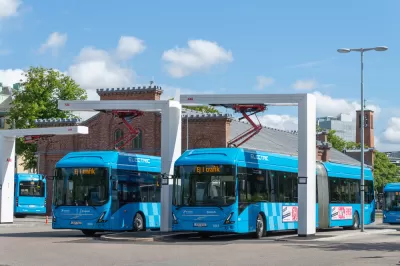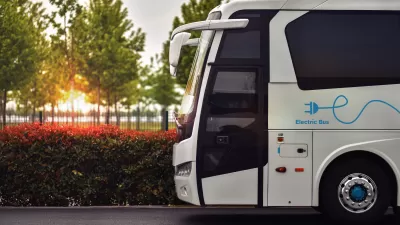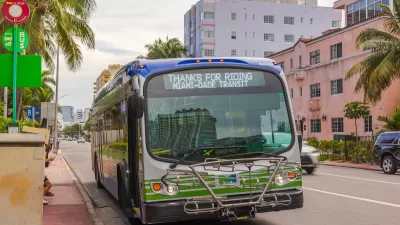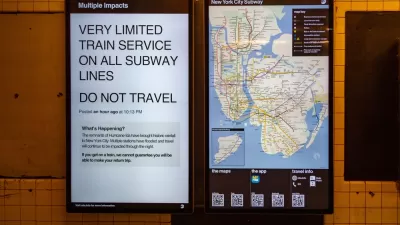Two federal grants will award close to $1.7 billion to state and local agencies to replace aging transit fleets and boost workforce development initiatives.

As part of the Biden administration’s efforts to shift the nation’s energy supplies away from fossil fuels and reduce emissions in the transportation sector, the Federal Transit Administration (FTA) announced “nearly $1.7 billion” in funding aimed at supporting the modernization and electrification of public transit fleets in 2023. The funding, part of $7.5 billion allocated in the Bipartisan Infrastructure Law, includes $1.22 billion for the Low or No Emission (Low-No) Program and $469 million for the Grants for Buses and Bus Facilities Program.
According to a press release from the Department of Transportation (USDOT), “Made possible by the President’s Bipartisan Infrastructure Law, which included historic funding to support public transportation, this Notice of Funding Opportunity (NOFO) is for two programs that help transit agencies replace old buses, provide good-paying jobs, improve transit affordability and reliability, invest in community health and environmental justice, and contribute to the President’s goal of net-zero emissions by 2050.”
The programs require that five percent of each grant is directed to workforce development efforts to help close the staffing gap faced by many transit agencies. The grants also prioritize “projects that advance environmental justice” as defined by the Justice40 Initiative.

Alabama: Trump Terminates Settlements for Black Communities Harmed By Raw Sewage
Trump deemed the landmark civil rights agreement “illegal DEI and environmental justice policy.”

Planetizen Federal Action Tracker
A weekly monitor of how Trump’s orders and actions are impacting planners and planning in America.

The 120 Year Old Tiny Home Villages That Sheltered San Francisco’s Earthquake Refugees
More than a century ago, San Francisco mobilized to house thousands of residents displaced by the 1906 earthquake. Could their strategy offer a model for the present?

In Both Crashes and Crime, Public Transportation is Far Safer than Driving
Contrary to popular assumptions, public transportation has far lower crash and crime rates than automobile travel. For safer communities, improve and encourage transit travel.

Report: Zoning Reforms Should Complement Nashville’s Ambitious Transit Plan
Without reform, restrictive zoning codes will limit the impact of the city’s planned transit expansion and could exclude some of the residents who depend on transit the most.

Judge Orders Release of Frozen IRA, IIJA Funding
The decision is a victory for environmental groups who charged that freezing funds for critical infrastructure and disaster response programs caused “real and irreparable harm” to communities.
Urban Design for Planners 1: Software Tools
This six-course series explores essential urban design concepts using open source software and equips planners with the tools they need to participate fully in the urban design process.
Planning for Universal Design
Learn the tools for implementing Universal Design in planning regulations.
Clanton & Associates, Inc.
Jessamine County Fiscal Court
Institute for Housing and Urban Development Studies (IHS)
City of Grandview
Harvard GSD Executive Education
Toledo-Lucas County Plan Commissions
Salt Lake City
NYU Wagner Graduate School of Public Service





























